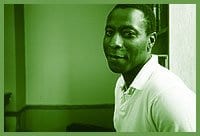Tolerance for sexual minorities on campus isn’t enough for the organizers of a university conference on queer issues.
“We know about the experience of tolerance and intolerance, we want to look beyond that,” says Jude Tate, the chair of the last Bent On Change conference two years ago and one of the organizers this year. “What does it look like? How do we get there?”
The University Of Toronto, York University and Ryerson University have come together for such an exploration, running at Jarvis Collegiate and Ryerson on Sat, Nov 1 and 2.
With more than 200 participants and interest from across Canada and the US last time around, Tate sees the conference as growing in size and scope.
In order to explore the theme of Beyond Tolerance: Rethinking Queer Issues On Campus And In Communities, the steering committee has enlisted the help of keynote speakers Zahra Dhanani, who is an activist and immigration lawyer, and academic and writer Rinaldo Walcott.
Walcott has done a lot of work around equity issues.
“The language of tolerance has come to such a mainstay in the LGBT [lesbian, gay, bisexual and trans] community, we need to stand back and do some very careful thinking about its implications,” says Walcott, a prof of sociology and equity studies at the U of T.
Why is the language of tolerance potentially dangerous?
“Tolerance brings up the idea that people who tolerate you, can withdraw it…. Tolerance can easily slip into intolerance,” says Walcott. “We risk losing the larger question of sexual liberation and changing the whole of society instead of just finding our place or our niche in it.”
Walcott sees the issue as a global one: “We need to stop thinking in terms of citizens and start thinking in terms of a nation, and citizens within a nation who have to be hospitable to each other – not on the basis of other people extending tolerance to you, shifting from a language of tolerance to a language of hospitality.”
Dhanani agrees that society has to go further. She came came to Canada when she was four and says that she has seen a lot of violence in her own life and in the life of her community. “I know what it feels like to be excluded, to be abused and what it feels like to have your humanity violated. Making a difference in the planet is two fold, and it starts with making a change within yourself.”
She remembers giving a presentation on how there was no representation of people of colour in the faculty, the curriculum or the programming when she was an undergrad at the University Of Ottawa.
“During my presentation, the dean walked out. I followed him down the hall shouting, ‘We will not be silenced.’ He went into his office and closed the door on me. I used to approach activism mad, angry and hateful,” says Dhanani, “I’ve realized that my hate didn’t change anything.”
Tate says this year’s conference will be different in that it will delve into the intersections that exist with sexuality. Be they race, sex, class, faith, disability or anything else from the large gamut of already marginalized groups.
“Almost every presentation will address those intersections and so-called diversity,” explains Tate.
Says Dhanani: “If the white queer person just looks at queer issues and nothing else, they might still be a force that perpetuates racism, sexism, etc and that doesn’t lead to an equal world. It might be better for them, but it won’t be better for the queer person of colour behind them.”
* Bent On Change takes place at Ryerson’s Oakham House (63 Gould St) and at Jarvis Collegiate (495 Jarvis St) on Sat, Nov 1 and 2. For more information, check out http://bentonchange.tripod.com, e-mail bentonchange@lycos.com or call (416) 946-5624. Registration is $25 for the public, $10 for students or pay-what-you-can.

 Why you can trust Xtra
Why you can trust Xtra


